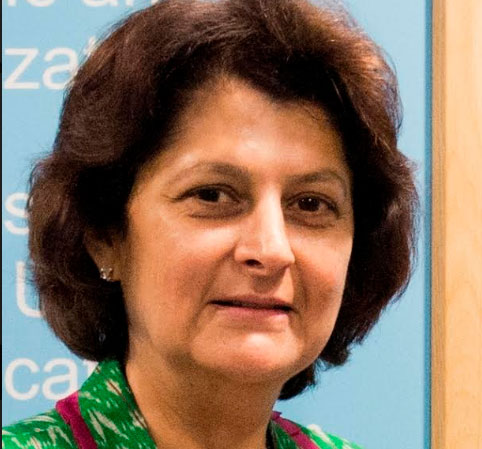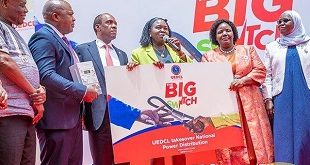
London, UK | THE INDEPENDENT | Ugandans living in the diaspora have convened a conference in London to discuss possible ways of participating in national development projects such as the transfer of knowledge, skills, and technologies among others to promote gainful employment.
The two-day conference dubbed the “Outreach Mission” is being hosted by Ambassador Nimisha Jayant Madhvani, Uganda’s High Commissioner to the United Kingdom.
Ambassador Johnny Muthahi Muhindo, the Head of the Diaspora Department that handles mobilization of the Uganda Diaspora under the Ministry of Foreign Affairs and keynote speaker at the event noted that the Conference will enrich the Ministry’s database on the identity, location, and skills of the Ugandan Diaspora.
Muhindo implored Ugandans in the diaspora to fully participate in government programs through regular visits to the different embassies around the globe. He implored participants in the Conference to initiate the Diaspora Savings and Credit Cooperative Organizations – SACCOs to facilitate investments at home and abroad.
Speaking at the Conference, Ambassador Nimisha called for a pilot project under the Ministry of Foreign Affairs and the International Organization for Migration – IOM, a principal United Nations agency to expedite the formulation of a policy for a safe, orderly, and development-oriented diaspora, and planned return of qualified Ugandan diaspora.
The Conference also unanimously proposed an annual homecoming summit beginning in 2024.
The Conference also urged the government to fulfill its mandate and make arrangements for the diaspora to exercise their voting rights, and privileges as the country gears for the 2026 general elections.
Although Article 59 of the Constitution provides for the right to vote, the provision requires the State to take all necessary steps to ensure that all citizens qualified to vote register and exercise their right to vote.
In the enforcement of Article 59, Parliament enacted various laws that provide for the right of Ugandans to vote at different levels: presidential (the Presidential Elections Act, 2005), the Parliamentary Elections Act, 2005), and the Local Governments Act 1997).
Uganda has also ratified international and regional human rights instruments such as the International Covenant on Civil and Political Rights (Article 2) and the African Charter on Human and Peoples’ Rights (Article 13), providing the right to vote including prisoners.
In 2020, the then Civil Division High Court Judge Lydia Mugambe issued an order directing the Electoral Commission to take all the necessary steps to ensure that Ugandans in the diaspora and the prisoners can participate in the 2026 general elections.
The Electoral Commission has since been obedient and efforts are underway to make sure that the two categories participate in the voting exercise which arose from a successful petition by Lawyer Steven Kalali.
The government estimates at least 1.5 million Ugandans live abroad including Africa, the Americas and Caribean, Asia and Pacific, Europe, and the Middle East. They make remittances that provide crucial support to relatives back home.
A May 2021 data from the Migration and Development Brief shows that remittance flows to Uganda by the diaspora in 2020 stood at 4.130 trillion Shillings, a decline of 26 percent, from 5.256 trillion billion in 2019 due to the global COVID-19 pandemic.
****
URN
 The Independent Uganda: You get the Truth we Pay the Price
The Independent Uganda: You get the Truth we Pay the Price



